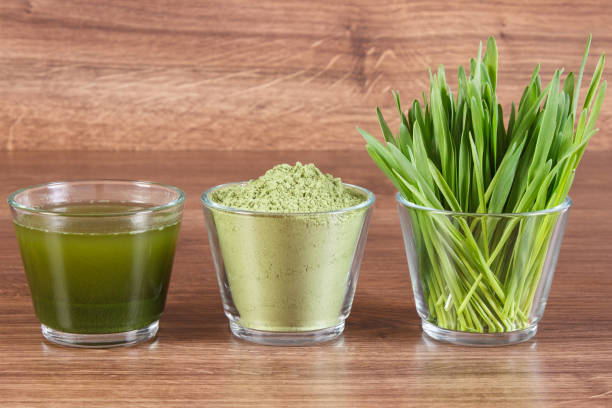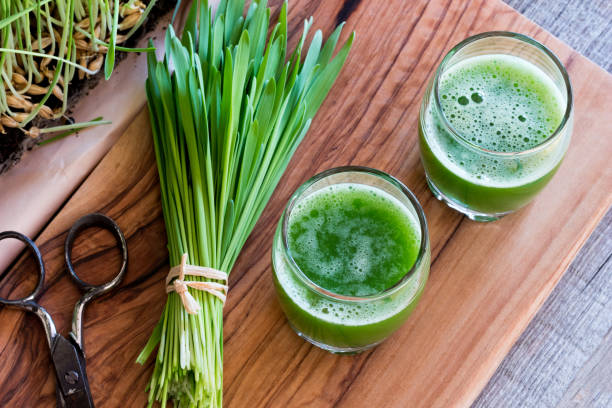Wheat grass is a type of grass that is harvested while still young and tender, typically when it is about 7-14 days old. It is often juiced or powdered and consumed for its potential health benefits. In this article, we will explore the nutritional value of wheat grass and discuss whether or not it is a healthy addition to the diet.
First, let’s take a look at the nutritional profile of wheat grass. One ounce (28 grams) of wheat grass juice contains approximately:
25 calories
1.5 grams of protein
0 grams of fat
5 grams of carbohydrates
2 grams of fiber
Wheat grass is also a good source of vitamins and minerals. It is particularly high in vitamins A, C, and E, as well as B vitamins such as thiamin, riboflavin, and niacin. Wheat grass also contains minerals like calcium, iron, magnesium, and phosphorus.
But what about the alleged health benefits of wheat grass? Proponents of wheat grass claim that it can improve digestion, boost the immune system, increase energy levels, and even help with weight loss. However, it is important to note that many of these claims are not supported by scientific evidence.
One area where wheat grass may have some benefits is in terms of its antioxidant content. Antioxidants are compounds that help to neutralize harmful free radicals in the body, which can contribute to the development of chronic diseases such as cancer and heart disease. Wheat grass contains several antioxidants, including chlorophyll, which is thought to have anti-inflammatory properties.
However, it is important to note that the antioxidant content of wheat grass may be lower than that of other plant foods. For example, a study published in the Journal of Agricultural and Food Chemistry found that the antioxidant activity of wheat grass was lower than that of other leafy green vegetables like spinach and kale.
Despite its potential antioxidant benefits, there is limited scientific evidence to support many of the other health claims made about wheat grass. While some people may experience improved digestion or increased energy levels after consuming wheat grass, these effects are likely due to the placebo effect or the fact that wheat grass is a source of nutrients.
In terms of weight loss, there is no evidence to suggest that wheat grass has any specific effect on body weight. While it is low in calories and may be a good source of fiber, consuming wheat grass alone is unlikely to lead to significant weight loss.
So, is wheat grass healthy for you? As with any food, it is important to consume it in moderation as part of a balanced diet. Wheat grass can be a good source of nutrients, particularly vitamins and minerals, but it is not a magic bullet for improving health. It is always a good idea to speak with a healthcare provider before making significant changes to your diet.
In conclusion, wheat grass is a type of grass that is harvested while young and consumed for its potential health benefits. It is a good source of nutrients, particularly vitamins and minerals, and may have some antioxidant activity. However, many of the health claims made about wheat grass are not supported by scientific evidence, and it is important to consume it as part of a balanced diet. While it may have some potential health benefits, wheat grass is not a miracle food and should not be relied upon as a sole source of nutrition.

 Home
Home Health
Health Diet & Nutrition
Diet & Nutrition Living Well
Living Well More
More












